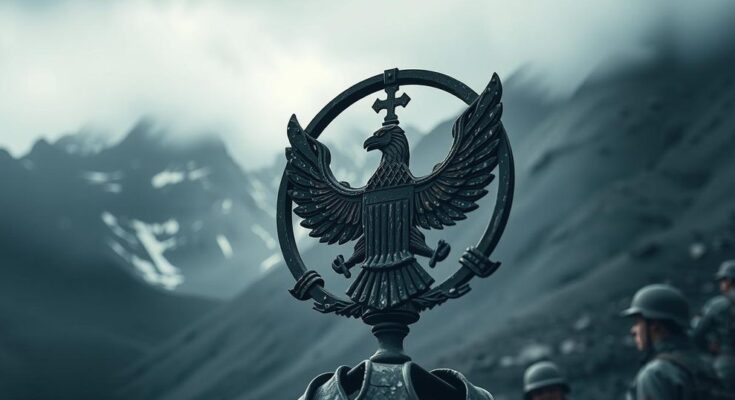Major General Peter Cirimwami Nkuba, military governor of North Kivu province in the Democratic Republic of Congo, died from injuries sustained in an M23 rebel offensive. This incident coincides with significant territorial advances by the rebels towards Goma, leading to a humanitarian crisis with 400,000 displaced individuals. The situation has raised alarms about the potential for a broader regional conflict, prompting calls for international intervention.
The military governor of North Kivu province in the Democratic Republic of Congo, Major General Peter Cirimwami Nkuba, has tragically died from gunshot wounds sustained during an M23 rebel offensive. Reports indicate that he was supervising troops approximately 20 kilometers from Goma when he was injured. Efforts to transport him for medical treatment were unsuccessful, leading to his demise shortly after the incident.
The M23 rebel group, which has made significant territorial gains in recent months, is advancing towards Goma, a city densely populated with over a million residents. Consequently, escalating violence has resulted in tens of thousands of people fleeing the area, sparking fears of a potential wider regional conflict. The situation is particularly dire, with reports indicating that 400,000 individuals have been displaced as fighting grows fiercer.
The ongoing conflict, rooted in long-standing ethnic tensions, has raised concerns about humanitarian crises. The United Nations has condemned the violence, highlighting its devastating impact on civilians and the strain on local hospitals. Furthermore, the U.N. reports allegations of Rwandan support for the M23, although Rwanda officially denies involvement.
Recent rebel advances have raised alarms, particularly after M23 captured the town of Minova and made incursions into Sake, threatening supply routes into Goma. While Congolese forces claim to have repelled some attacks, local sources maintain that fighting continues, stressing the urgent need for international attention and intervention. The government has called for an urgent public session of the U.N. Security Council, attributing the crisis to a lack of action from the international community.
The history of the M23 group, which derives its name from a peace agreement made in March 2009, underscores the persistent challenges faced in the region. The conflict remains complex, involving multiple actors and marked by accusations of human rights abuses. As the situation deteriorates, the international community is urged to reassess its strategies to restore peace in East Congo.
The recent death of Major General Peter Cirimwami Nkuba amidst renewed hostilities from M23 rebels illustrates the ongoing instability in North Kivu province. This region has experienced escalating violence since the beginning of the year due to territorial conflicts involving armed groups like M23, which emerged from a backdrop of ethnic tensions originating from historical events, including the 1994 Rwandan genocide. The precarious situation has led to massive displacements and heightened humanitarian crises, prompting both local and international calls for urgent intervention.
The death of Major General Nkuba highlights the intense violence perpetuated by the M23 rebels, exacerbating an already critical humanitarian situation in North Kivu province. As the conflict claims more lives and displaces thousands, the urgent need for international involvement and peacekeeping efforts is paramount to prevent further regional instability. The Congolese government’s appeal to the U.N. Security Council is a critical step in seeking a resolution to the ongoing crisis.
Original Source: www.straitstimes.com




